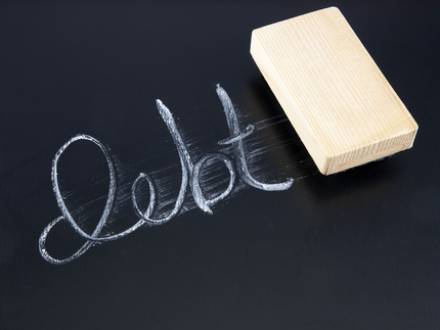What Debts Can be Discharged in Chapter 7 Bankruptcy?
 Perhaps you amassed too much credit card debt as a result of youthful indiscretion, or incurred a large and sudden medical debt after an unexpected health scare. You may have lost a job and suffered financial consequences. Whatever the reason, bankruptcy erases many debts and provides a financial fresh start.
Perhaps you amassed too much credit card debt as a result of youthful indiscretion, or incurred a large and sudden medical debt after an unexpected health scare. You may have lost a job and suffered financial consequences. Whatever the reason, bankruptcy erases many debts and provides a financial fresh start.
In Chapter 7 bankruptcy specifically, many of your debts will be discharged, meaning that you will no longer be responsible for paying for them. An experienced Mecklenburg County, NC Chapter 7 bankruptcy attorney can review your case to advise you on the debts that would be dischargeable in bankruptcy.
Do You Need to Have a Certain Amount of Debt to File for Chapter 7 Bankruptcy?
There is no minimum debt requirement to file for Chapter 7 bankruptcy. However, while Chapter 7 can be an opportunity to get your finances in order, it has its downsides. It can affect your credit score, you may have to give up certain assets, and you can only file Chapter 7 every eight years. For these reasons, it is recommended that you only take advantage of this process if you have a significant amount of debt.
What Kinds of Debts Does Chapter 7 Bankruptcy Eliminate?
A debtor who has filed for Chapter 7 bankruptcy protection can typically succeed in discharging many of the most common types of consumer debt in just four to six months. As a general rule, Chapter 7 discharges most types of unsecured debt, meaning debt that is not secured or backed up by any collateral (the way that a mortgage is secured by a home). Some other types of debt debts which are discharged in Chapter 7 include:
Credit Card Debt
The average American household has just under $9000 in credit card debt and high interest rates can make it difficult to reign in ballooning debt. Chapter 7 bankruptcy discharges most credit card debt.
Medical Debt
By some estimates, nearly 70 percent of those who file bankruptcy do so to erase medical debt.
Personal Loans
Personal loans are usually dischargeable in bankruptcy, whether you obtained that loan from a family member, friend, or bank.
Deficiency Balances
When a home or car is sold off by the bank to pay for the collateral (in situations like a foreclosure or repossession) and the sale price does not cover the entire amount owed on the loan, the remainder is called a deficiency balance. These can also be discharged in Chapter 7.
Call a Mecklenburg County, NC Chapter 7 Bankruptcy Attorney
At Blossom Law PLLC, Attorney Rashad Blossom represents clients looking for a fresh financial start by filing for Chapter 7 bankruptcy. If you have questions about the process or the kinds of debts that can be discharged in Chapter 7 bankruptcy, the experienced Concord, NC Chapter 7 bankruptcy attorney can help. Call our firm at 704-256-7766 for an initial consultation.


 704-BLOSSOM
704-BLOSSOM

